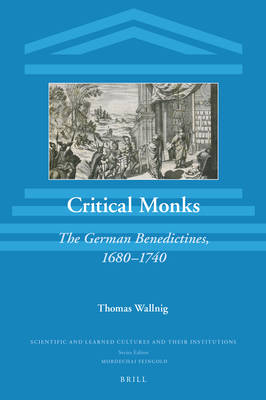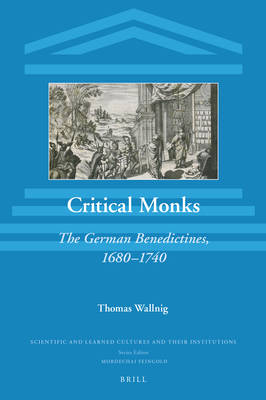
- Afhalen na 1 uur in een winkel met voorraad
- Gratis thuislevering in België vanaf € 30
- Ruim aanbod met 7 miljoen producten
- Afhalen na 1 uur in een winkel met voorraad
- Gratis thuislevering in België vanaf € 30
- Ruim aanbod met 7 miljoen producten
Zoeken
Omschrijving
Benedictine scholars around 1700, most prominently proponents of historical criticism, have long been regarded as the spearhead of ecclesiastical learning on the brink of Enlightenment, first in France, then in Germany and other parts of Europe. Based on unpublished sources, this book is the first to contextualize this narrative in its highly complex pre-modern setting, and thus at some distance from modernist ascriptions ex posteriori. Challenged by Protestant and Catholic anti-monasticism, Benedictine scholars strove to maintain control of their intellectual tradition. They failed thoroughly, however: in the Holy Roman Empire, their success depended on an anti-Roman and nationalized reading of their research. For them, becoming part of an Enlightenment narrative meant becoming part of a cultural project of "Germany".
Specificaties
Betrokkenen
- Auteur(s):
- Uitgeverij:
Inhoud
- Aantal bladzijden:
- 378
- Taal:
- Engels
- Reeks:
- Reeksnummer:
- nr. 25
Eigenschappen
- Productcode (EAN):
- 9789004355460
- Verschijningsdatum:
- 17/01/2019
- Uitvoering:
- Hardcover
- Formaat:
- Genaaid
- Afmetingen:
- 157 mm x 239 mm
- Gewicht:
- 657 g

Alleen bij Standaard Boekhandel
+ 423 punten op je klantenkaart van Standaard Boekhandel
Beoordelingen
We publiceren alleen reviews die voldoen aan de voorwaarden voor reviews. Bekijk onze voorwaarden voor reviews.








